In the 1970s, a revolution took place on the TV screen. Audiences witnessed the rise of a new breed of female actresses who dismantled stereotypes and redefined the boundaries of women in entertainment. These iconic women were not just sidekicks or love interests but rather trailblazers who held the spotlight with their talent and determination.
These 12 revolutionary female actresses from the 70s highlighted the power of women within the industry and paved the way for future generations of strong, intelligent, and multifaceted female leads!
Goldie Hawn
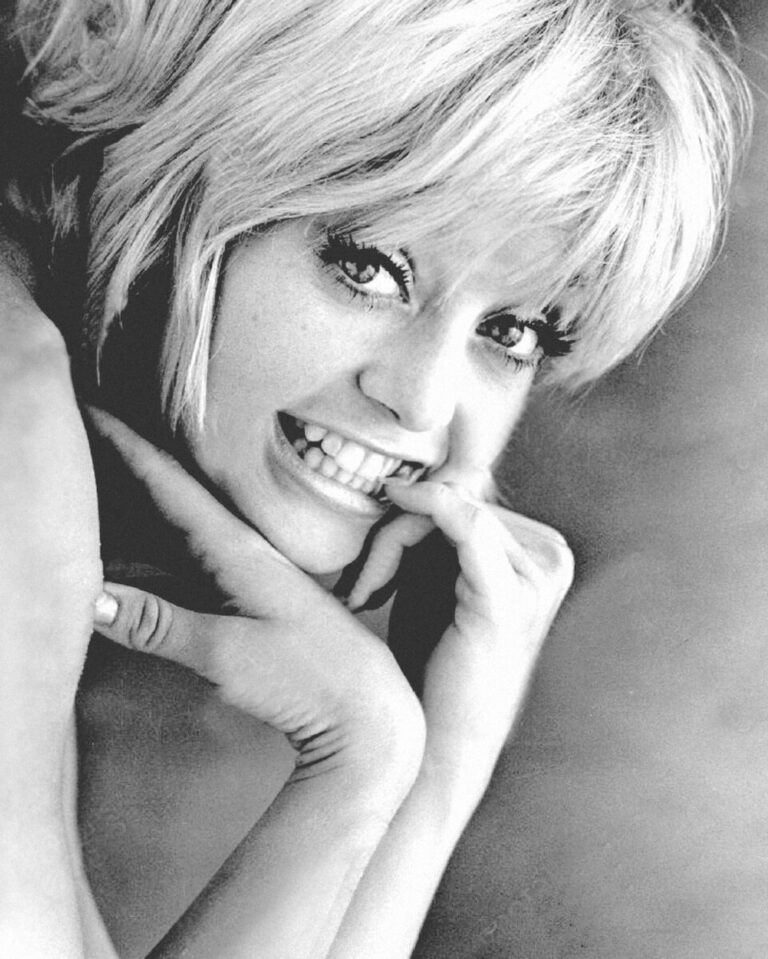
Among the revolutionary female actresses from the 70s and first up on our list, Goldie Hawn was an absolute knockout. She was beautiful, talented, and full of energy. But this beautiful bombshell was way more than just a pretty face. Goldie challenged what the world expected from a leading lady, knocking down ingrained gender barriers with her groundbreaking roles.
Her big break came in 1969’s Cactus Flower, which won her an Oscar for Best Supporting Actress. Later, in the 1980’s, her role in Private Benjamin really shattered stereotypes. Goldie played Judy Benjamin, a spoiled rich wife who joined the army after her husband died. Watching this princess become a tough soldier lady was inspiring for audiences. A woman defying societal expectations like that- unheard of for female actresses from the 70s!
Goldie’s characters had attitude and confidence, never apologizing for being themselves. Especially during a time before women had equal rights as men in many sectors of life, her roles inspired countless females of all ages to embrace their individuality and stand their ground. Among the groundbreaking female actresses from the 70s, she showed the world you don’t have to fit into a mold to be a superstar.
Shelley Duvall

In the 1970s, Shelley Duvall emerged from Hollywood, defying conventions and redefining what it meant to be a leading lady. With her memorable wide-set eyes, slender frame, and charisma, Duvall stood out in the entertainment industry, which was often fixated on cookie-cutter glamour.
Her journey to stardom began when director Robert Altman cast her in his 1970 film Brewster McCloud. From there, Duvall’s career took off. As the 70s progressed, Duvall continued to tackle diverse roles that highlighted her versatility as an actress. She lit up the screen in Nashville (1975) and left a lasting impression in Woody Allen’s Annie Hall (1977).
However, later, in the 1980s, it was her portrayal of Olive Oyl in Robert Altman’s live-action Popeye (1980) that truly cemented her status as a one-of-a-kind screen presence. Perhaps Duvall’s most iconic role came in 1980 with Stanley Kubrick‘s The Shining. Playing Wendy Torrance, she brought vulnerability to the screen.
Looking back, Duvall’s career exemplifies the revolutionary spirit of female actresses in the 70s, where individuality and risk-taking took off. She broke the mold of traditional Hollywood beauty standards and proved that unique talents could thrive in the industry, earning herself a place on our list of female actresses from the 70s.
Also Read: Jamie Lee Curtis’ Ten Best Movies
Barbra Streisand
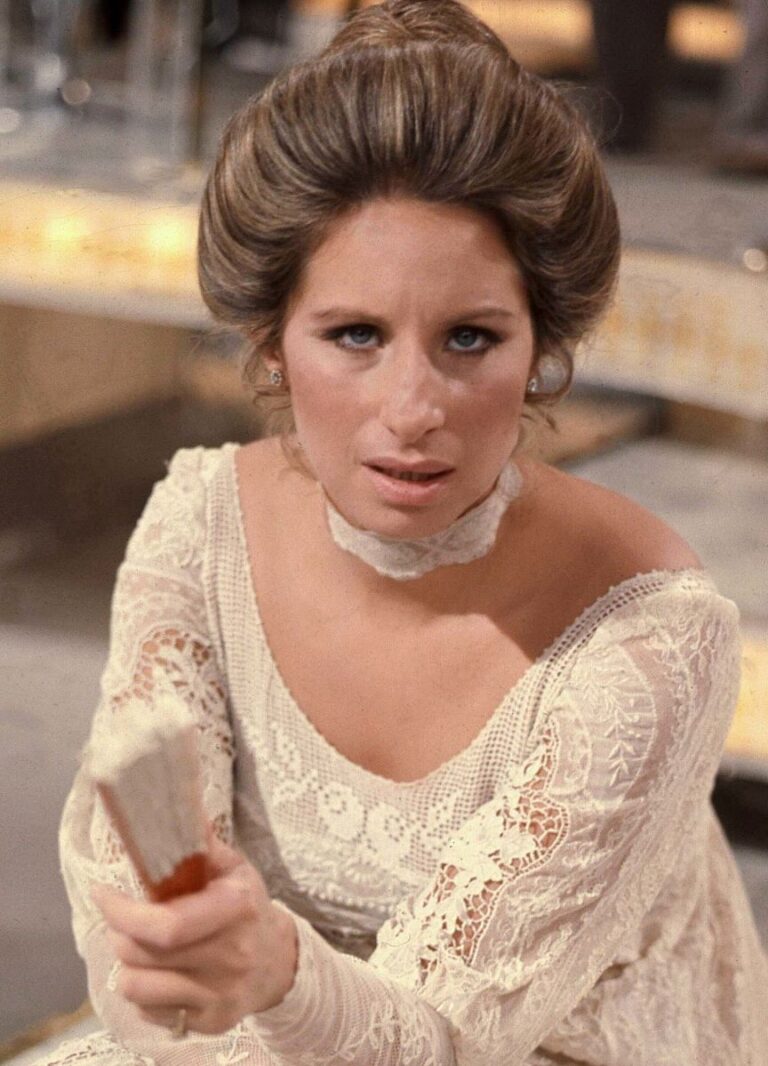
Up next, Barbra Streisand showed Hollywood what women could do. This New York girl didn’t just act – she sang, directed, and made her own movies.
Streisand kicked off the decade riding high from her huge 1968 hit Funny Girl. She played Fanny Brice, a role that won her an Oscar and showed the world her exceptional talent. Streisand continued to impress audiences and made people laugh in The Owl and the Pussycat (1970) and What’s Up, Doc? (1972). Later, she also took on serious roles, like in The Way We Were (1973), which got her another Oscar nomination.
But it was clear that Streisand wanted more control over her work. She directed her own movie, Yentl (1983), where she also acted and sang. This was a big deal for the time because few women directed movies back then. Streisand also fought for what she believed in. She wanted equal pay and the power to make decisions about her films. She also showed that you don’t need to look like everyone else to be a star. Her unique nose became iconic!
Overall, Barbra Streisand didn’t just entertain people in the 1970s – she changed the role of women in Hollywood. She still inspires actresses today to follow their dreams and stick to what they believe in.
Diahann Carroll

Diahann Carroll broke new ground in the 1970s as a pioneering African American actress. She made history with her lead role in the sitcom Julia, which continued into the early 1970s. In it, she played a widowed nurse and single mother. This marked the first time a black woman starred in a primetime network series in a non-stereotypical role.
Carroll’s talent continued to shine through across various mediums. Later, she earned an Oscar nomination for her performance in the 1974 film Claudine, in which she played a struggling single mother in Harlem. On Broadway, she also captivated audiences in productions like Same Time, Next Year, and Agnes of God.
Beyond her acting, Carroll became a style icon and used her fame in the entertainment industry to advocate for civil rights and better representation in Hollywood. Her elegant nature, talent, and barrier-breaking roles opened doors for future generations of Black female actresses in the 70s and beyond.
Mary Tyler Moore

Next on our list is Mary Tyler Moore, who tossed her hat in the air, revolutionizing American TV. For seven years, The Mary Tyler Moore Show brought us Mary Richards – intelligent, independent, and career-focused.
Moore’s personality mixed strength and vulnerability, tackling workplace sexism one minute and laughing off dating disasters the next. She showed America that women could be ambitious, funny, and feminine all at once. Her impact on women of the 70s was huge. Suddenly, women across the country saw new possibilities for themselves. Moore didn’t just play a character, but instead, she ignited a cultural shift in gender roles.
Behind the scenes, Moore was equally revolutionary, running her own production company in a male-dominated industry. In a decade of change, Mary Tyler Moore proved that a woman’s place could be wherever she wanted, all while flashing her unforgettable smile.
Also Read: Demi Moore’s Ten Best Movies
Carrie Fisher
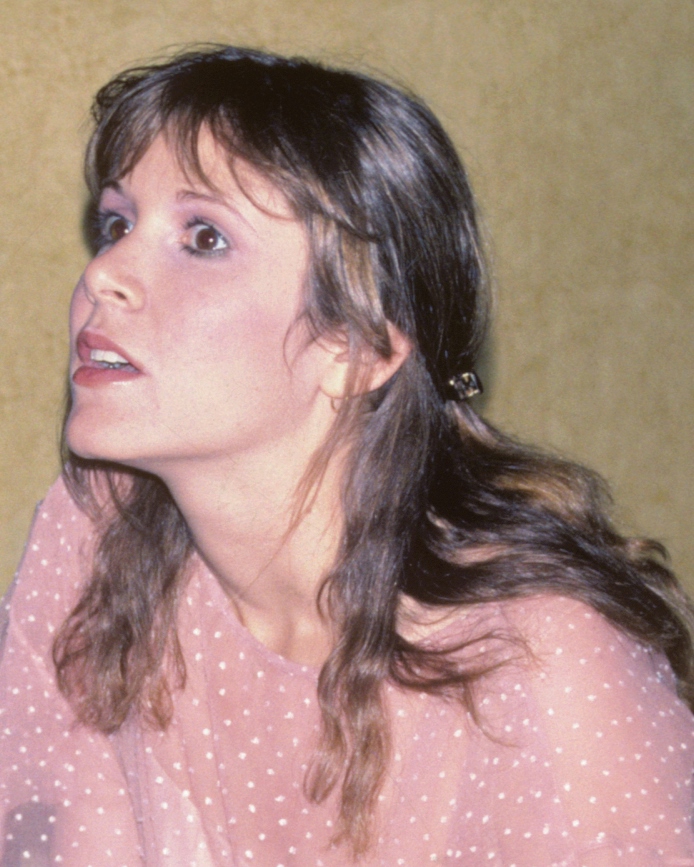
If you’re a Star Wars fan, when you think of Carrie Fisher, Princess Leia probably comes to mind first. But this Hollywood icon was so much more than her well-known Star Wars role. Fisher began getting recognized in 1977. Her wit, talent, and honesty changed what it meant to be an actress in the 70s and beyond.
Beyond Star Wars, she shined in films like When Harry Met Sally and Hannah and Her Sisters. Fisher’s real revolution came off-screen. She openly discussed her struggles with bipolar disorder and addiction, breaking down mental health stigmas.
As a writer, Fisher wrote novels such as her semi-autobiography Postcards from the Edge, which later became a hit movie. This showcased her talent for turning personal pain into relatable art.
Fisher redefined Hollywood actresses. She was funny, outspoken, and truly herself. Her legacy extends far beyond Princess Leia, inspiring countless generations, even Gen Z, with her talent, honesty, and resilience.
Olivia Newton-John

When it comes to famous female actresses from the 70s, Olivia Newton-John didn’t just join the party – she cranked up the volume and invited everyone to dance. This British and Australian actress charmed audiences with a voice like butter and her ambitious personality.
Was she a country singer? Pop star? Movie actress? Newton-John really said “why not all of the above?” and dominated every category that she entered. Her role as Sandy in the 1978 musical film Grease (who knows, maybe you’ve heard of it?) immediately launched Newton-John to legendary status. The movie’s soundtrack became a global phenomenon, with Newton-John’s performances of “Hopelessly Devoted to You” and “You’re the One That I Want” topping charts worldwide.
Beyond the stage, Newton-John also used her platform to advocate for important causes. She became a passionate spokesperson for breast cancer awareness and research after her own diagnosis in 1992. Her openness about her health struggles inspired millions and brought much-needed attention to women’s health issues.
Ultimately, Olivia Newton-John’s impact on popular culture extended far beyond the 1970s. Her talent, versatility, and personal strength continue to inspire new generations of performers and fans, cementing her place among the most influential female actresses of the decade.
Lynda Carter
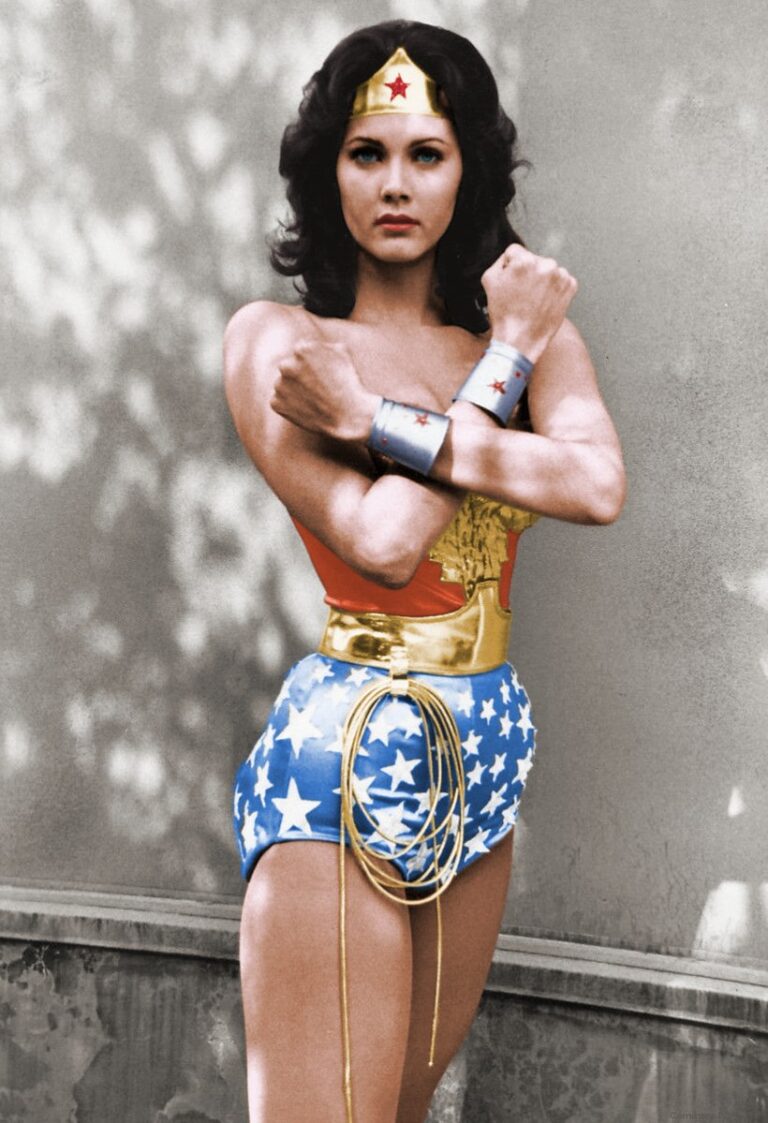
Up next on our list, Lynda Carter skyrocketed to fame in the 1970s with her portrayal of Wonder Woman. Born in Arizona in 1951, Carter started as a singer and beauty queen. As the titular character Wonder Woman in 1974, she brought strength and intelligence to the screen, challenging stereotypes about women in action roles.
Like many of these other female actresses from the 70s, Carter’s impact went beyond the screen. She became a symbol of female empowerment, advocating for women’s rights and LGBTQ+ issues. Beyond her work in Wonder Woman, Carter also appeared in various TV projects and pursued her music career. She released albums and performed in nightclubs and on television, showcasing her versatility as an entertainer.
Today, Carter’s legacy is defined by her portrayal of Wonder Woman and continues to influence modern adaptations and inspire new generations.
Liza Minnelli
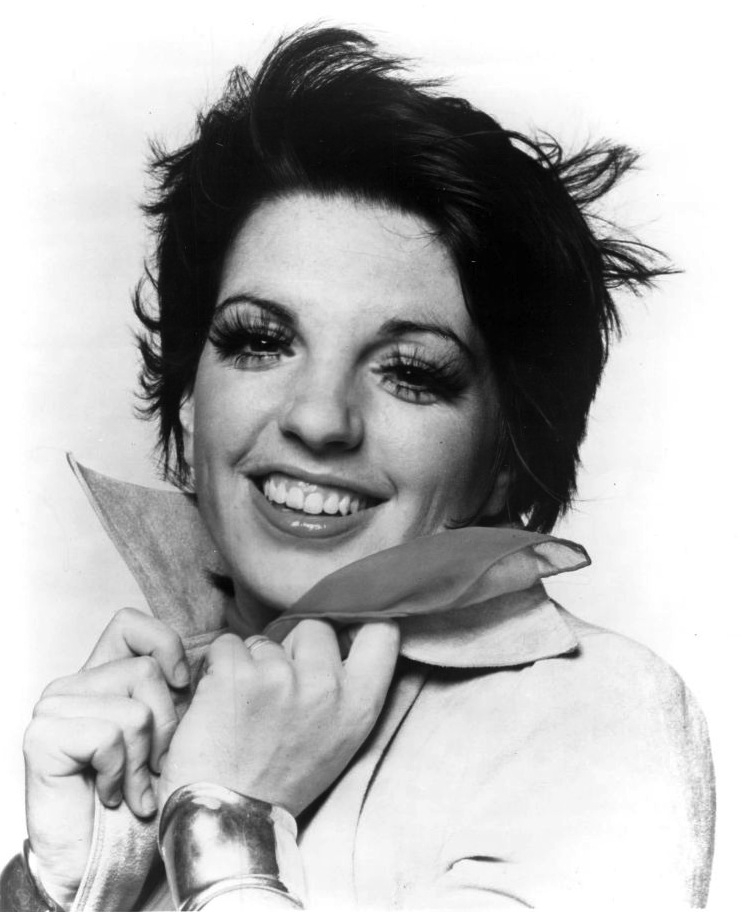
When Liza Minnelli took the stage, the world stopped to watch. Undoubtedly, this pint-sized icon owned the 1970s, breaking through barriers and redefining what it meant to be a female star.
Minnelli kicked off the decade with an Oscar-winning bang in Cabaret (1972). Her portrayal of Sally Bowles became an icon of sexual liberation, inspiring women to challenge stereotypical interpersonal relationships and live life on their own terms. Later, she then conquered the television with Liza with a Z, proving she could sing, dance, and captivate an audience of millions.
On Broadway, Minnelli’s electrifying performances turned every show into an event. She perfomed in roles such as Flora in Flora the Red Menace (1965) and Roxie Hart in Chicago (1975). Her ability to breathe new life into classic characters and originate unforgettable roles made her a true Broadway star.
Minnelli’s influence extended beyond entertainment. Her classic pixie cut and flashy style launched trends, while her openness about addiction and support for LGBTQ+ rights made her a relatable icon. In the 70s, Liza Minnelli didn’t just perform-she inspired many generations in entertainment and beyond.
Diane Keaton

Next, Diane Keaton established herself within the Hollywood scene in the 1970s, quickly proving that she was force to be reckoned with. Her unique style, both on and off-screen, set her apart from her peers and made her an icon of the era.
Keaton’s breakthrough came with her role as Kay Adams in Francis Ford Coppola’s The Godfather (1972). She held her own alongside stars like Marlon Brando and Al Pacino, showcasing her ability to deliver powerful performances in dramatic roles.
However, it was her collaborations with Woody Allen that truly cemented her status as a star. In films like Sleeper (1973) and Love and Death (1975), Keaton proved that she had a natural flair for comedy. Her most memorable role came in 1977’s Annie Hall, which earned her an Academy Award for Best Actress. Keaton’s portrayal of the quirky, neurotic character resonated with all audiences, making her a household name. Later, Keaton ventured into directing with the documentary Heaven (1987).
What truly set Keaton apart was her ability to blend vulnerability with strength, creating complex and relatable characters that women off-screen could see themselves in. Her androgynous fashion choices, featuring menswear-inspired outfits, influenced fashion trends both on and off the screen and inspired people to dress however they chose.
Throughout her career, Keaton has continued to challenge herself with diverse roles, proving her power within the industry and setting a clear example as one of the strongest female actresses from the 70s.
Faye Dunaway

As we approach the end of our list, we cannot forget to include Faye Dunaway. This fierce and talented actress enthralled audiences with her striking beauty and raw intensity on screen. Dunaway’s career soared in the 70s, building on her breakout role in 1967’s Bonnie and Clyde.
She kicked off the decade with a bang, starring in the gritty thriller Little Big Man (1970) with Dustin Hoffman. But it was her role as the ruthless television executive, Diana Christensen, in Network (1976) that highlighted her range as a female actress of the 70s. Dunaway’s performance earned her an Academy Award for Best Actress. Later, she chilled audiences in Roman Polanski’s Chinatown (1974). Her ability to take on and portray morally ambiguous characters set her apart from her peers.
Dunaway’s off-screen persona matched her on-screen intensity. Sometimes, her outspoken nature led to clashes with directors and co-stars, but it also helped pave the way for future actresses to demand more from the industry.
As the 70s drew to a close, Dunaway continued to push boundaries. Her portrayal of Joan Crawford in Mommie Dearest (1981) remains a cult classic. Faye Dunaway’s fierce talent and dedication to her craft inspired generations of actresses following the 1970s.
Jane Fonda
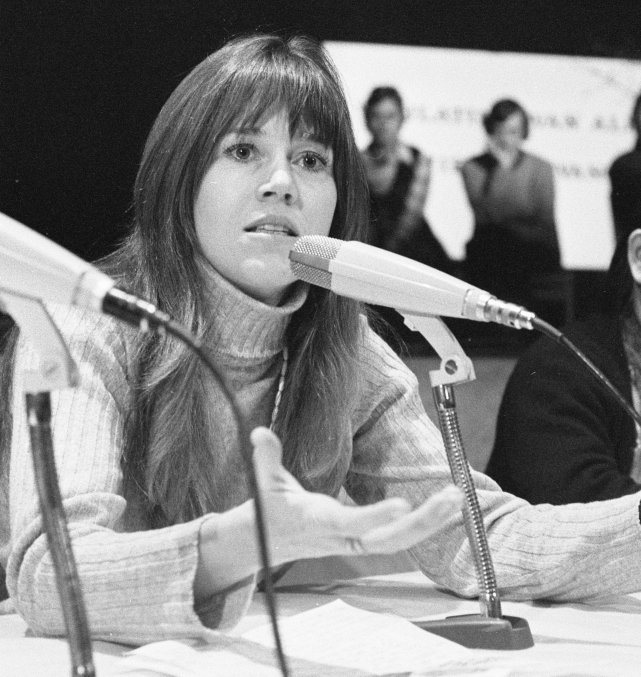
Last, but definitely not least, Jane Fonda made our list of iconic female actresses from the 70s. Known for her intelligence and unwavering convictions, Fonda tackled complex roles that pushed boundaries and sparked conversations.
Her performances in films like Klute (1971) and Coming Home (1978) earned her two Academy Awards, highlighting her versatility and depth as an actress. Fonda brought raw emotion to the screen and captivated audiences.
Beyond her acting, Fonda used her celebrity platform to advocate for social and political causes. She spoke out against the Vietnam War, fought for women’s rights, and raised awareness about environmental issues. Her activism sometimes was controversial, but it also inspired a generation of young people to engage with important societal problems. Later, in the 1980s, Fonda changed the fitness industry with her wildly popular workout videos, encouraging women to take control of their health.
Fonda’s influence continues to resonate with modern artists. Singer-songwriter Maggie Rogers, known for her blend of folk and pop music, has cited Fonda as an inspiration. Rogers admires Fonda’s ability to combine art with activism and saw parallels in their shared commitment to environmental and social justice. Today, Jane Fonda continues her acting career and activism well into her 80s.
Also Read: The Most Memorable Movie Duos of the 80s
More About:Movies






